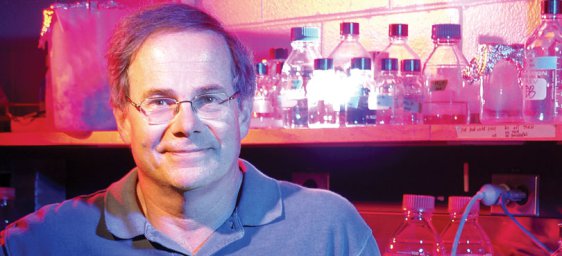Phi Beta Kappa hosts professor of neurology for Visiting Scholars Program
4 min read
Tomaldridge46/Flickr
By JULIANNE KUHN
Last week, Gregory Petsko made a stop at the University of Mary Washington on his college campus tour with the Phi Beta Kappa Visiting Scholars Program.
Phi Beta Kappa is the oldest academic honor society in the country. Their Visiting Scholars Program has been around since 1956, sending some of the nation’s best scholars to college campuses where they join inot academic life for two days. Visiting scholars spend time in the classrooms, taking part in discussions, meeting and speaking with students and faculty and giving a public lecture on their topic of expertise.
During his presentation, Petsko talked about his experiences and how he came to the field of biophysics. After graduating, he was offered a Rhodes scholarship for Oxford University to study classical literature. Before reaching England, however, Petsko discovered that the man he was going to work for had passed away. After reassessing his options, he was told to go to David Phillip’s lab to learn molecular biophysics.
“I said okay because there was nothing better to do,” Petsko said. “There was nothing to lose and it wasn’t like I was going to make a career out of that, it was just something to do for two years while I had fun living in Europe.”
What he did not know was that it would become his passion. Petsko earned his Ph.D. in biochemistry in 1973 with a central interest in protein structures and function.
“I always try to counsel my students that they shouldn’t panic if they don’t quite know what they want to do what they should do then is do as many things as possible and see what turns out. They’ll find something,” Petsko said.
Petsko spent years in academics, hidden away doing research. About ten years ago, he came to the realization that he was not fulfilling his obligation to the public.
“It seemed to me that we were failing as a community to explain to the public that what we were doing was good for them,” Petsko said.
He decided to become a public scientist, engaging with the public to let them know what the scientific community was doing with the money they receive from donations, foundations and taxes.
Currently, Petsko has a focus that could change the fate of millions.
“At the moment, my area of research is trying to cure Alzheimer’s disease, Parkinson’s disease and Lou Gehrig’s disease,” Petsko said.
His tone became increasingly serious as he compared neurodegenerative diseases to trying to make an origami bird. For the proteins in human bodies to do their job, they must be folded up exactly right into a precise 3-D shape.
Petsko explained there are mechanisms at work in every cell that recognize when proteins misfold and either refold it or get rid of it. Some proteins, however, misfold in a way that these mechanisms cannot cope with and they remain and build up over time. In other cells in the body, like skin cells, there is constant renewal meaning that this misfolding does not have a catastrophic effect. The story is different for the neurons in the brain.
“The neurons you had as a child are the neurons you have now. You don’t get any more once you’ve developed all your neurons,” Petsko said.
When the misfolded, toxic proteins build up in a neuron, it could die.
“That’s basically what happens with neurodegenerative diseases. It’s as though your origami bird has folded into a wad of paper, but that wad of paper in the case of some neurons turned out to be toxic,” Petsko said.
Petsko’s origami bird analogy applies to the solution as well. If the bird is falling apart, the solution is to glue it. Petsko takes a similar approach to his search for neurodegenerative disease cures.
“We’re trying to make drugs that act like molecular glue to hold those proteins in their correct shape so that they don’t misfold,” Petsko said.
His team has developed a gene therapy for Lou Gehrig’s disease, also known as ALS, that will hopefully be ready to test on people in a year.
However, despite working to cure severe diseases, the most remarkable thing that he has seen in his entire life has nothing to do with science and everything to do with social change.
“I would say that the thing that has astonished me the most in my whole life has been the speed with which the gay marriage debate has shifted in favor of gay marriage,” Petsko said. “That it would eventually happen, I was sure, but I thought it would take 25 years. It’s taken 5 years.”
Before heading home to New York, Petsko gave a lecture on “The Coming Neurological Epidemic and What Science Is –and Should Be- Doing About It,” a lecture that he has also presented as a Ted Talk.
Though Petsko has spoken at many colleges around the nation he had specific advice for UMW students.
“I’ve spent two days here and attended classes and talked to students like… This is a terrific place with committed teachers and students who seem to be very bright,” Petsko said.
“And so I would say to you: “Aim High. You have what it takes. Don’t aim too low; don’t sell yourself short. This is a good school with good students and if you’ve done well here you can do well anywhere at anything. Aim High. You’ll be glad you did.”










